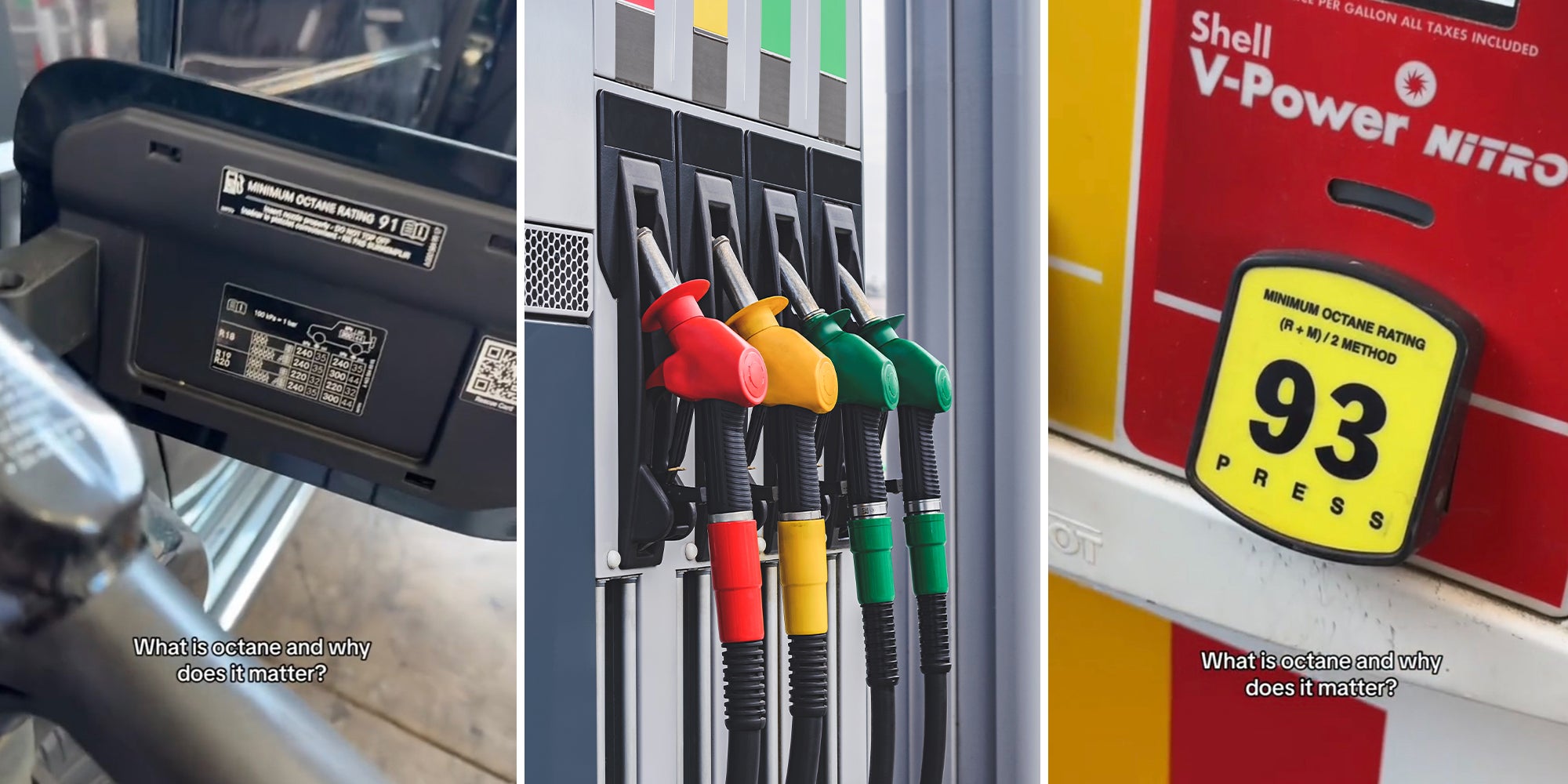A driver has learned that her car needs at least 91 octane gasoline, and instead drives with the supposedly sensible 89 octane gasoline. Has she been doing something wrong all this time?
The video that essentially asks this question comes from creator Alexis Nido-Russo (@locaeclectic). She posted the video last Sunday and it has received more than 5.3 million views in a week. In it, she takes a video from the gas station and records her moment of enlightenment.
It starts with her saying, “I just stopped to get gas. My cousin says, ‘I’m getting gas for you,’ and then she says, ‘Your pump says 91 minimum octane.'”
The cousin inquired what kind of gasoline she wanted to put in her car, and Nido-Russo replied, “Oh, just use the medium, that seems good enough.” The view of the pump shows, as is typical of American gas stations, a choice of 87-octane, 89-octane and 93-octane gasoline. (In California, however, the state-mandated maximum is 91.)
As she studied these three values, she realized, “I had no idea what these numbers meant.”
However, she concluded from this episode: “So I have to put premium gasoline in my car. I don’t know if that really matters, but who knew what those numbers meant?”
@locaeclectic I was years old today when I learned what those numbers on the gas pump mean…
♬ Original sound – Alexis Nido-Russo
Does fuel quality really matter?
According to fueleconomy.gov, this is important. This page states: “Higher octane fuels are often required or recommended for engines that use a higher compression ratio and/or use forced induction or turbocharging to force more air into the engine. By increasing pressure in the cylinder, an engine can extract more mechanical energy from a given air-fuel mixture, but requires higher octane fuel to prevent premature ignition of the mixture. In these engines, high octane fuel improves performance and fuel economy.”
It also notes that if you go below the recommended octane rating, “Using a fuel with a lower octane rating than required can cause the engine to run poorly and, over time, can damage the engine and emissions control system. It can also void your warranty. In older vehicles, the engine may make an audible knocking or pinging noise. In many newer vehicles, the ignition timing can be adjusted to reduce knocking, but engine performance and fuel economy will still suffer.”
Car and driver tested the efficiency of premium gasoline in several different cars in 2019 and found that a high-performance BMW performed particularly well with 93-octane gasoline, compared to the 91-octane gasoline used in the Golden State.
“The higher octane fuel shaved a tenth of a second off the M5’s acceleration times,” the article said. “The result is a blistering 0-60 mph time of 2.7 seconds and a quarter mile of 10.8 seconds, putting this five-seat, 1900kg four-door car firmly in the realm of supercars.”
“The M5 Competition is proof that octane makes a difference. However, with these two premium fuels, you’re not missing out on much if you’re forced to use 91 octane,” they concluded.
The opinion of the audience
Commenters on the TikTok video mainly focused on the question “Who would have thought.”
“We all knew it,” one scoffed.
However, another replied: “I was years old today when I found out.”
Someone else, assuming from context that she was driving a Mercedes-Benz G-Class SUV, remarked, “Spending money on a Gwagon and putting low or mid-spec on it is completely insane. Read your manuals.”
Another commented on the higher price of high-octane gasoline: “My minimum octane should be plus, but I’m too poor for that.”
The Daily Dot contacted the creator via email and TikTok direct message.
Internet culture is messy—but we break it down for you in a daily email. Sign up for the Daily Dot’s web_crawlr newsletter Here. Get the best (and worst) of the internet delivered straight to your inbox.

